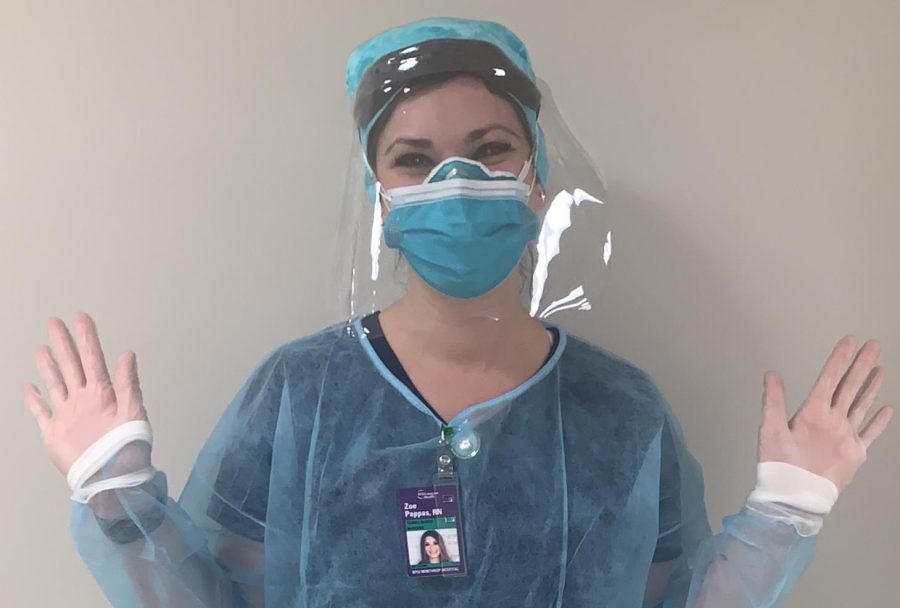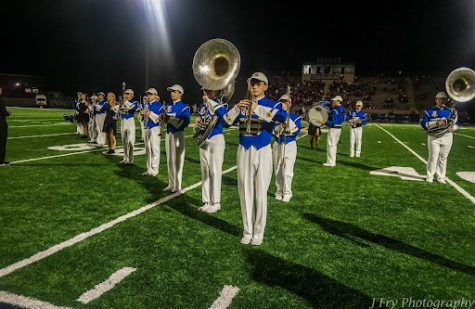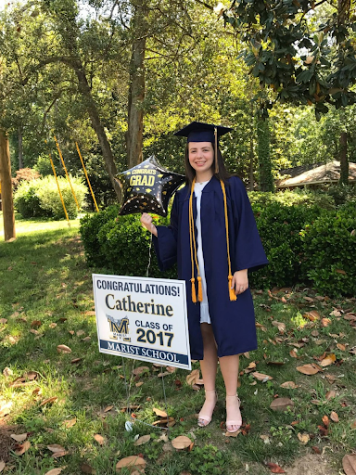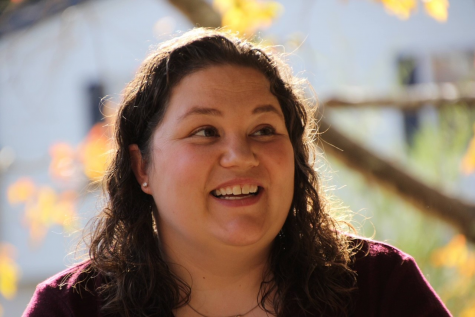The Call to Serve
Nurse Zoë Pappas shares her experience working on the frontlines this spring.
Marists are called to serve. And that is exactly what Marist School nurse Zoë Pappas did this spring.
At the start of the COVID-19 pandemic, nurses from across the country, including 75 from Children’s Healthcare of Atlanta, flocked to New York City, the epicenter of the virus then. Pappas was one of those nurses. Usually a nurse at CHOA when not working at Marist, she has served on the hospital’s Aflac Cancer and Blood Disorders Unit for the past six years, where she “care[s] for kids,” newborns to age 21, “with leukemia, solid tumors, brain tumors, or sickle cell anemia.”
Pappas flew up to New York City on April 11 and began work the very next night. “Everything moved so fast,” she recalls. Just five days earlier, she had spoken to her manager regarding joining one of the pandemic response teams. Pappas received her contract from the NYC recruiter 12 hours after reaching out. With everything happening quickly, Governor Andrew Cuomo suspended the requirement for a New York nursing license before working. “I worked up there for almost two weeks before a background check or nursing license review came back,” said Pappas. “That’s never happened before in health care.”
For over two months in New York, Pappas worked the night shift from 7 p.m. to 8 a.m. for five days a week, a total of 60 hours each week, at the NYU Long Island Hospital with her best friend Lauren, also from CHOA. Pappas and her friend rented an apartment in Queens and commuted to and from work every day via the subway and Long Island Railroad, an hour and 20 minute journey each way.
Upon arriving at the hospital for her very first shirt, “it was the most chaotic thing I had ever seen,” Pappas describes. The hospital was three times its normal capacity with cafeterias and conference rooms converted into make-shift ICUs and “18 wheelers used as morgues” in the parking lot outside. Even though Pappas says she has always thrived in high intensity situations with rapid changes, this threw her. She had never worked in this hospital before, never treated a patient over the age of 21 before, and never worked in an ICU before. She even wore her own personal protective equipment, wearing masks from her local nail salon and “the best scrub cap ever,” which English Department Chair Gina Parnaby had sewn for Pappas before she left. Her first night, she was given a hand drawn map of the hospital to follow as well as a YouTube channel recommendation to learn how to use certain ICU machines.
With these challenges and stressful circumstances, Pappas also met some great people. One challenge she faced was converting the labor, delivery, and newborn baby floor to another COVID unit. Usually a joyful place in most hospitals, Pappas was tasked with discharging and transferring the current patients before admitting 100 COVID patients from the emergency room, all in a matter of hours. The local nurses on the floor, Pappas describes, “had never taken care of patients with failing respiratory systems or dying patients before,” but they had to do all that and more with a couple hours of notice and no training. “And they were doing it with nurses like me that they had never seen before,” she says. “But that was what had to happen.” And Pappas will never cease to be amazed at how they rose to such a terrifying occasion with bravery “Even though the situation was scary, unknown, and seemingly not doable,” Pappas says, “what I learned about others and myself is really amazing.”
Pappas clearly remembers when she received “all of the incredibly kind and encouraging emails from Mrs. Eaglen’s Christian Morality classes.” She is grateful for those messages that were “key in keeping up [her] moral in what was one of the hardest times of [her] life,” Pappas says. The emails made her laugh, smile, and most importantly, reminded her that no matter how bad things seemed, there was so much worth fighting for.
For Pappas, this experience allowed her to grow as a person, making her calmer, better able to make hard decisions quickly, and more equipped to be present for other people. “In situations like this, amidst mass chaos, fear, and lack of sleep, you can easily lose sight of the fact that people are people,” Pappas says. “They have fears, intentions, motivations, and back stories.” It’s made her realize that there is always enough time to really see the people around her and to do her best to care for them in whatever way she can.
In such a weird year, Pappas offers this advice to her Marist family: See each other and listen to each other. No matter how things seem, there is always time for that. These times are so hard for so many reasons, but this time adds to our ability to endure, process, support, and rise. You all can do this. I know you can get through this. It might be really messy, but you all can do anything. And I can’t wait to see you all on the other side.
Thank you, Nurse Zoë, for your strength, courage, and service on the frontlines this spring. You are a true hero.
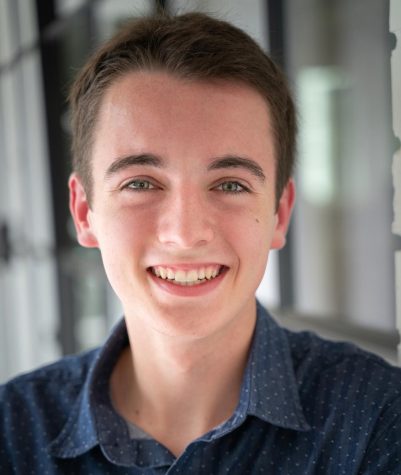
Christian Conte is a senior at Marist School and the Editor-In-Chief for the Blue & Gold. At Marist, Christian is also involved with Theater, Student Council, Retreat Leader, Student Ambassador, is a National Honor Society Board Member, and more! His favorite beverage from the cafeteria is the Arden's Garden "Sunrise" smoothies, and Christian's favorite day of the week is #MotivationalMonday! He enjoys utilizing the platform of this newspaper to express his creativity and give a voice to everyone in the Marist Fam, and he has been a member of the Blue & Gold since 9th grade. Christian thanks you for taking the time to read Georgia's oldest high school newspaper!!



